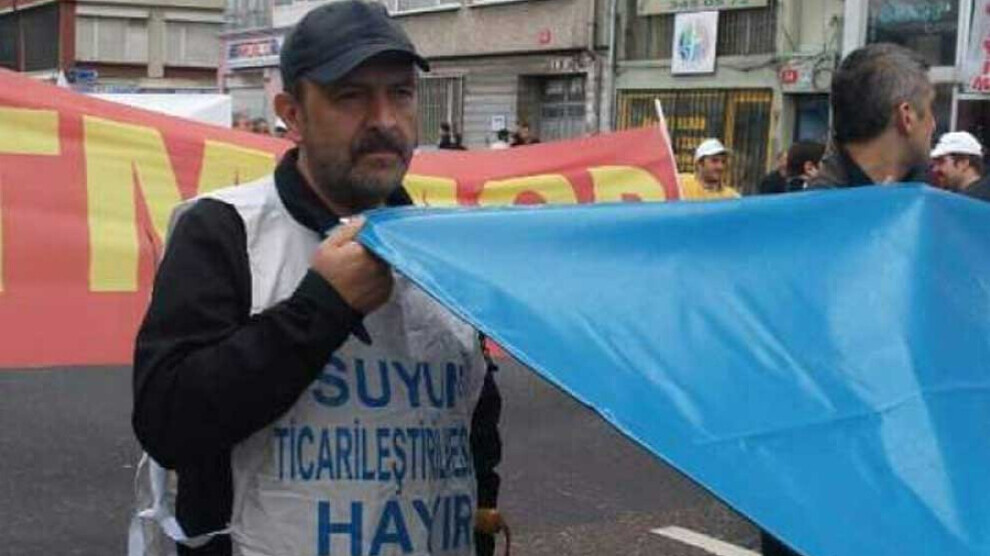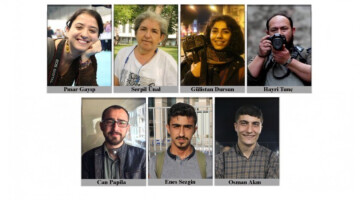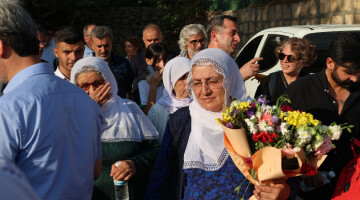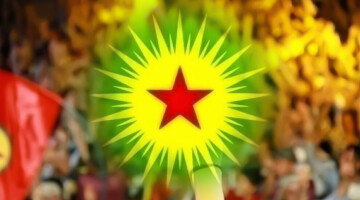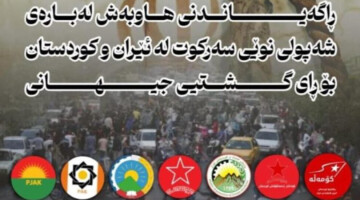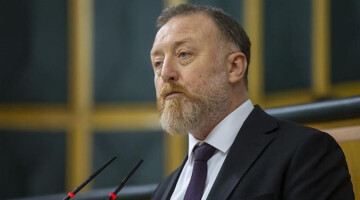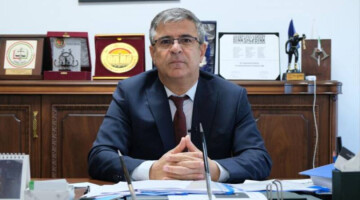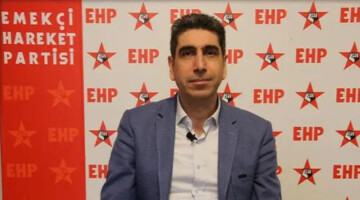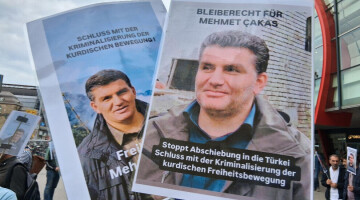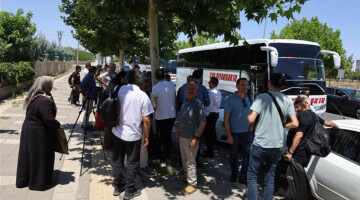The capitalization of agriculture threatens food security in Turkey. Journalist Yusuf Gürsucu from the newspaper Yeni Yaşam told ANF that "people must realize that they have no future if they do not stand up for their water, their land and their air."
There have been farmers' protests in Turkey for two weeks. People are protesting against the high production costs and the low sales prices. Farmers who cannot afford the production costs and therefore cannot cultivate part of their fields are being pushed further out of production by new laws that provide for the re-leasing of uncultivated land.
The Ministry of Agriculture has issued a decree allowing the leasing of fields that have not been cultivated for two years. What are the consequences of this, especially for small producers who are under acute threat from agricultural monopolies?
This decree, prepared by the Ministry of Agriculture and Forestry and hastily implemented, takes agriculture away from producers and puts it entirely at the mercy of corporations. Meanwhile, farmers are either displaced or exploited as farm workers on their own land.
A similar function has already been proposed by a revision of the "Decree regulating the procedures and principles for planning agricultural production" published last year. This decree was implemented last year and made producers slaves of corporations. With the latest decree, the government, which itself ensures that farmers incur losses every year and cannot cultivate their land, has paved the way for the theft of farmers' land.
It is made to seem as though it is the farmers' own decision to stop production, but the fact that the field is forcibly leased to someone else makes it clear that this is something else. The regulation published last year stipulates that farmers must obtain advance approval from the state each year as to what they are to grow. The farmers' initiative to decide for themselves what they want to grow is being undermined. The farmers are being reduced to taking orders.
According to the "Presidential Decree on subsidies for the production of crop products and some other agricultural subsidies for 2025-2027", subsidies for fertilizers and diesel, as well as differential payments (premiums) for 17 products, have been completely abolished since 2025. The media reported that diesel and fertilizer subsidies have been abolished, but the ministry denied this. The decision published in the Official Gazette does not mention the words diesel and fertilizer. In response to protests, the ministry announced that the item "basic subsidy" would be used for fertilizers and diesel. How do you assess this latest decision?
Like all government policies, the abolition of subsidies means that agriculture is no longer run by farmers but by companies, and farmers are employed as labor at starvation wages. All laws and regulations issued by the government are aimed at eliminating small-scale agriculture. The Mansholt Plan, implemented in Europe in the 1960s, ensured the concentration of agricultural land in the hands of monopolies. Some people point to the importance of "agricultural" subsidies and use Europe as an example in comparison with Turkey.
However, while independent small-scale farming has been almost completely abolished in Europe, those who still practice small-scale farming produce under contracts with companies. All subsidies paid out in Europe are paid to companies. In Turkey, a similar process of completely handing over production to the capital is being carried out. While small-scale farming is being eradicated and monopolies are being created, agricultural land is being completely used for mining, industry, construction, energy and other purposes.
Former Agriculture Minister Mehdi Eker said in a statement: 'Either corporate villages are formed and the landowners become partners with the companies, or the landowners hand over the land to someone who knows what they're doing.' Land consolidation, which has intensified in recent years, is part of this process. The main reason for land consolidation is that companies prefer large areas. The fact that supporters of this process point out that the lands are very fragmented and small seems to be well-intentioned, but ultimately serves, knowingly or unknowingly, to concentrate agriculture in the hands of monopolies.
Many small agricultural producers have been protesting for days. Is there a connection?
While the farmers' protests are a good response to the government's policies, the fact that a policy is being pursued to bankrupt farmers and make them leave their land shows the seriousness of the situation very clearly. On the one hand, farmers are no longer even worth harvesting because of the prices at which they can sell their produce, and they are left lying in the fields. On the other hand, during the protests, they load their produce onto tractors and dump it in the appropriate places. The fact that the government, which is doing nothing to correct this situation, is cutting agricultural subsidies and issuing a decree to confiscate the land that the farmers cannot cultivate, shows its hostility towards the farmers and its love of capital. All these policies aim to condemn the people to starvation and enslave them.
The government, which ties even the most basic foodstuffs to imports, also indirectly feeds the energy companies and other companies that are supported by the government of Turkey. These companies, which want to invest in energy in this country, depend on importing agricultural products from other countries. The best examples of this are the agreements with Serbia and Bosnia and Herzegovina. Ultimately, this is nothing more than a sign that the GMO production that has been prepared in Turkey for many years will pave the way for monocultural production throughout Turkey.
Turkey is the country with the highest food inflation. Especially in light of climate change, food security is one of the most important issues in the world. How do all these agricultural policies affect access to food in Turkey?
Food inflation is just one of the consequences of the government's economic policies. While peoples are pushed to the brink of poverty by inflationary policies, capital, on the other hand, is experiencing growth that it has never seen in its history. The expansion of oppression in the provinces of Kurdistan by DEDAŞ and other distribution companies in the region is part of the overall policy.
The process that began with all water in Kurdistan, one of the regions considered to be the most water-rich within Turkey's borders, being locked behind dams, continues with the farmers being forced to use groundwater. On the other hand, the agro-corporations and licensed warehouses do not buy the wheat produced by Kurdish farmers due to lack of space, and the farmers are forced to sell their products to traders at prices far below their production costs. In this situation, we must remember that the same policy that is being applied against farmers throughout Turkey has also been applied against Kurdish farmers for years.
While on the one hand, water is to be sold throughout the Middle East and the water is captured behind dams, on the other hand, huge dams are ensuring that ongoing climate change develops destructively in the region and in the world. The fact is that the Middle East, including Turkey, is one of the regions where hunger and thirst will increase the most in the near future. This is a clear indication that peoples have no other future than to demand their water and their land by recognizing these realities. If there is no water and no land, one cannot speak of the food sovereignty of peoples. Food security is something that can only be achieved through food sovereignty. We must be clear that our future will be very dark if the capitalist powers that make the decisions today are not overthrown and replaced by popular democracies.

